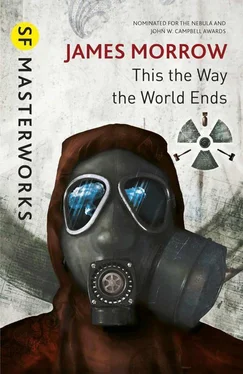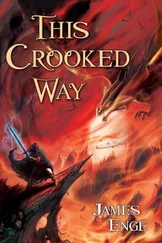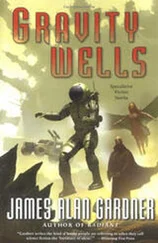James Morrow
THIS IS THE WAY THE WORLD ENDS
Some say the world will end in fire,
Some say in ice.
From what I’ve tasted of desire
I hold with those who favor fire.
But if it had to perish twice,
I think I know enough of hate
To say that for destruction ice
Is also great
And would suffice.
– Robert Frost
‘A remarkable achievement’
Arthur C. Clarke
‘Intelligent, humorous… deeply moving… Morrow is a lyrical, inventive writer’
Brian Aldiss
‘I have not been so moved by an SF novel for a very long time’
The Times
‘If Kurt Vonnegut had collaborated with Jonathan Schell on an antinuclear novel, this might be the result’
New York Times Book Review
In the last years of the twentieth century (as Wells might have put it), Gollancz, Britain’s oldest and most distinguished science fiction imprint, created the SF and Fantasy Masterworks series. Dedicated to re-publishing the English language’s finest works of SF and Fantasy, most of which were languishing out of print at the time, they were – and remain – landmark lists, consummately fulfilling the original mission statement:
‘SF MASTERWORKS is a library of the greatest SF ever written, chosen with the help of today’s leading SF writers and editors. These books show that genuinely innovative SF is as exciting today as when it was first written.’
Now, as we move inexorably into the twenty-first century, we are delighted to be widening our remit even more. The realities of commercial publishing are such that vast troves of classic SF & Fantasy are almost certainly destined never again to see print. Until very recently, this meant that anyone interested in reading any of these books would have been confined to scouring second-hand bookshops. The advent of digital publishing has changed that paradigm for ever.
The technology now exists to enable us to make available, for the first time, the entire backlists of an incredibly wide range of classic and modern SF and fantasy authors. Our plan is, at its simplest, to use this technology to build on the success of the SF and Fantasy Masterworks series and to go even further.
Welcome to the new home of Science Fiction & Fantasy. Welcome to the most comprehensive electronic library of classic SFF titles ever assembled.
Welcome to the SF Gateway.

This novel, written in 1986, is reminiscent of Jonathan Swift and Philip K Dick in its satirical seriousness and its biting magical realism. It says much about how perceptions have shifted that now on reading it in 2012 I felt hard-pressed to consider it SF at all, in spite of its fantastical setting and its alternate-reality technology. I think partly this is due to its treatment of the fantastical elements: while the technology is clearly ordinary SF fare, it’s a minor feature. Here it is simply a necessary instrument for the design of the story and its outcome, the purpose of which is an effort to make a scathing critique of the notion of Mutually Assured Destruction, both as a principle and as one of many such human rationalisations which serve no one and perpetuate world views in which acts of the most extreme tragedy and cruelty are no more than the necessary logical outcomes of a particular political arena.
The novel feels like it belongs with the literary novelists whose work clearly inspired Morrow: Vonnegut, Heller, Swift – rather than with a more orthodox SF canon, although as I write that I feel that I have elevated literature and downgraded SF, instead of which I would much rather do the other and add another well-deserved kick into the pants of literary snobbery, as Morrow would too. SF should be glad to have Morrow as Morrow is to have SF (and he did say so in an interview in 2000, which makes me like him all the more).
Regardless of who belongs to what genre the inclusion of this book in the SF Masterworks series is justified by its quality of thought and execution. As in several of his other works Morrow is at pains to demonstrate the universality of human folly when it comes to philosophising about difficult situations, and he places the blame at the door of insufficiently evolved human beings; the people who never grew up but who learned enough to manage all the intellectual tools of how to talk yourself out of your responsibilities. What’s not to like about that?
Since it was written the boundaries on genres, the scope of general literature and the ‘Terreur Du Jour’ have changed. The one thing that has most dated is its central focus on the nuclear threat and the Cold War as the most, in fact the only, real extinction event facing humankind. Nowadays this rates relatively low – perhaps too low – on my personal scale of ways for the world to end, although at the time of its composition in 1986 I regularly woke from nightmares about the bomb dropping on some ordinary day in which I was unable to reach those I loved, whether they were separated from me by miles or mere yards – the flash came, the silence descended and those yards were instantly forever. I remember lying awake in bed after, countless times, wondering if it would really happen and how it was that humans could contemplate doing such things to one another. This book, in all its horrific detail, captures exactly those emotions of wonder, fear, denial, hope and horror. It combines them with Carroll’s surreal logic of Wonderland and shows the aftermath of destruction as a Through The Looking Glass-world in which the ideas that led to the holocaust must be dealt with directly. Guilt must be felt. Justice must be served. Someone will be held to account and made to pay. It answers my question. That the answer is not a solution is hardly Morrow’s fault.
Morrow spares no detail of anguish in going for this jugular but the story is written so that at times its comic absurdity lurches into farce, then back into satire and then into tragedy. As such it could have fallen prey to becoming too much an intellectual exercise or a horror story, but is spared by remaining tied to the human through its central character, George Paxton, and his fanciful notions of repopulating the dying Earth. This stands in a slightly odd contrast to the frame story in which Nostradamus and Leonardo are both portrayed as significant; complicit as witnesses and harbingers, long-dead conspirators of doom.
One of the things that I enjoyed most about this book is its use of these whimsys and devices that toy with prediction and invention, fantastic and realistic, literary allusion and real reference, putting them together in ways that make for a complex satisfaction in that it adds up to something, although what exactly I am unable to articulate. It is like Eliot’s poems in this respect – big and odd enough to allow almost an infinity of meaning to be poured into it at times. It is this refusal to become sufficiently simple that is most pleasing and life-affirming about good literature; it recognises and surpasses the limits of single systems of thought or perception and Morrow does this here quite well.
This is the Way … also stands in a strong and obvious relation to Eliot’s The Hollow Men , not only because it takes its title from that poem, but most of its sensibilities too. None of the characters here put on trial for the annihilation of the human race, with the exception of the ordinary George Paxton, have much in the way of personality or redeeming features. In that they perhaps are the best portraits of whom we like to think of as responsible for such unbearable visions – monsters of our own kind who are not amenable to trauma and as such cannot be pulled into compassion. Their lack of neuroticism, imagination and social restraint and their ability to be easily convinced by arguments enable them to commit acts of extinction others would never dream of. Able to blind themselves with causes, reasons and the drama of being important they lose connections to reality, connections that have also been severed in the past by religions or other panoplies of ideas intent on justifying cruelty and explaining away tragedy. The soul’s panaceas become the tormentors of the world.
Читать дальше













